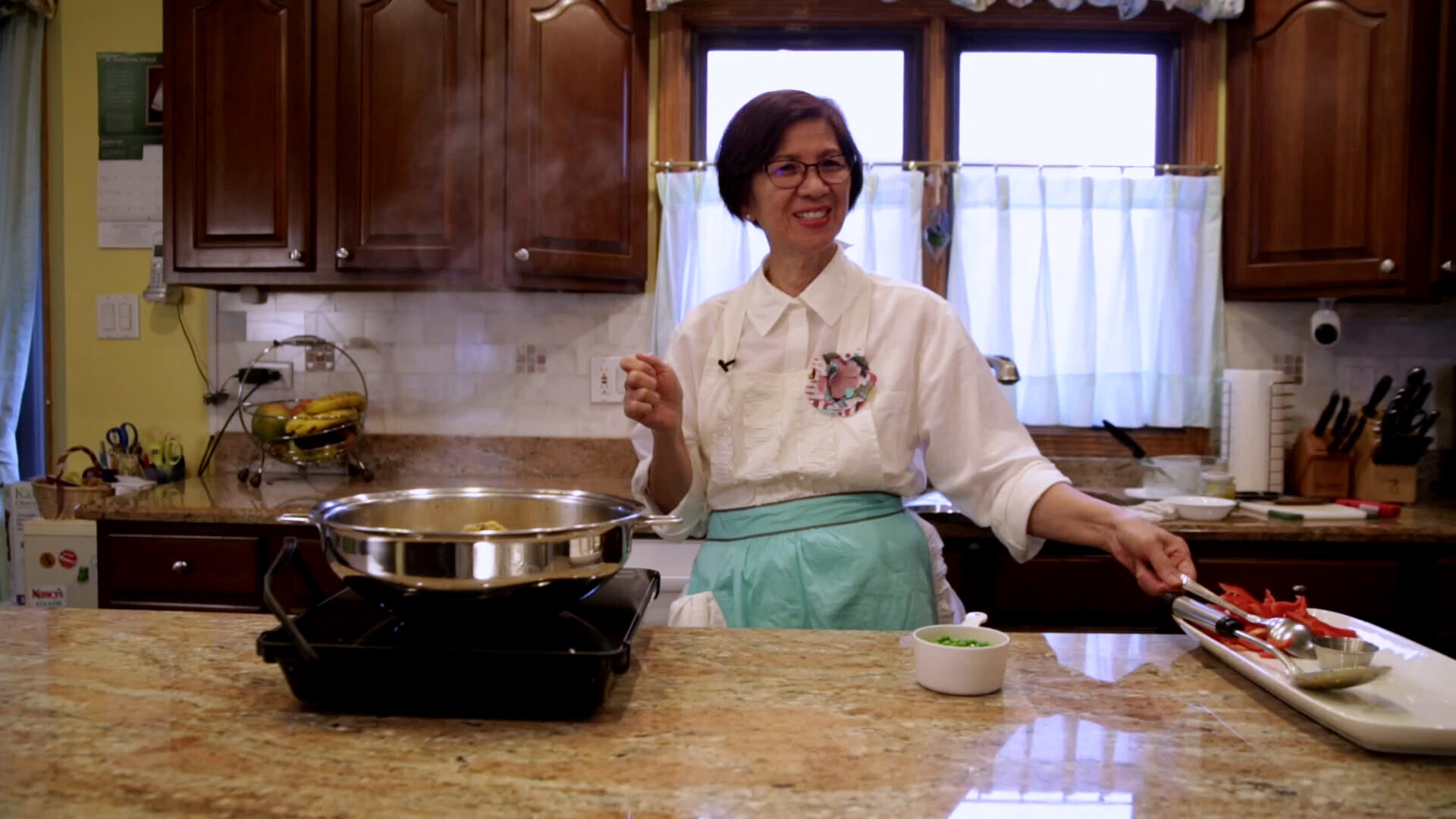Tita Baby + Chicken Afritada
Chicken Afritada
prepared by Estrellita Barin
This chicken afritada recipe comes from Estrellita 'Baby' Barin, a retiree who worked in various fields including education, catering, medicare, and social service. Her family has roots in Pampanga and she was born and raised in Dinalupihan, Bataan.
When Estrellita was a senior in college, she and her group of female friends agreed that they would all find dates for their prom, no siblings or friend’s relatives allowed. She asked her sister’s brother-in-law to help her find a date and he immediately recommended his roommate, Benito, who happened to be from her town. After Benito escorted her to prom, he visited her often at school. Though she denied any romantic connections during that time, he was persistent in courting her, and eventually became her first boyfriend, her only boyfriend, and then her husband. They were married in Dinalupihan when Benito returned from a period in the United States after being petitioned by his mother. He left for the US alone and Estrellita joined him two years later. They settled in Chicago where he found work and they raised their two children in the south suburbs surrounded by some of their extended family.
Growing up, the tamarind-based soup sinigang was central to Estrellita’s diet. In a house with six children, simple and economical meals were crucial. Thus, the versatility of sinigang allowed for a variety of ingredient combinations and easy bulk preparation. Pork, chicken, bangus, or tilapia would be paired with the abundant backyard vegetables like long beans, okra, and kangkong to make hearty, sour stews. Estrellita learned to make sinigang and other traditional dishes through close observation of her mother’s cooking. She paid careful attention as her mother gave cooking instructions to their household help and honed her skills through experimentation, sometimes serving these experiments to reluctant siblings. An important tip Estrellita learned from her mother was to avoid cooking with vinegar in a metal pot. Rather, vinegar-based recipes should be prepared in clay pots or other non-reactive cookware for better flavor. Estrellita valued this advice so highly that when she migrated to the United States, she brought a clay pot with her. That clay pot held memories of the many family-shared sinigangs, paksiws, and adobos until it broke during one of their moves between houses. To this day, she still refuses to use a metal pot when cooking with vinegar.
Tita Baby’s dishes can be a bit challenging to recreate since she does not write any of her recipes down. When she shares recipes, she passes along ingredient estimates in dashes, pinches, and eye-balled measurements. To her, the trick to achieving the desired taste is time and practice and cooking from one’s own preference. Tita Baby’s advice to new or timid cooks is to be fearless and avoid panicking, “Don’t be afraid. Make it fun for yourself. Don’t be afraid to try these ingredients…Don’t get panicky. When you get panicky, that’s when you ruin your cooking. So take your time.”

